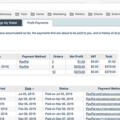Deal to scrap tariff hikes a win for the housing market, economists say
The Trump administration has reached a deal to scrap tariff hikes on Chinese goods set to take effect on Sunday and slash some existing duties in half, according to CNBC. That’s a positive for the housing market, according to economists.
It comes with a caveat, though. A similar announcement in October of a “Phase 1” deal was nixed later by China, though not before it caused a U.S. stock market rally and three days of positive headlines.
If this latest agreement holds, it would cancel the hikes scheduled for Sunday and cut existing tariffs in half on $360 billion in Chinese products, according to CNBC.
“Resolving some of these trade disputes would be good for U.S. economic growth and good for the overall housing sector,” National Association of Home Builders Chief Economist Robert Dietz told HousingWire in an interview.
Tariffs have a direct impact on housing by boosting the cost of materials, he said. Many of the ingredients that go into a home, such as drywall, nails, kitchen countertops and asphalt roof shingles, are imported from China.
And, no, China is not paying the tariffs, Dietz said. The tariffs are collected by U.S. Customs agents from importers when goods enter the country.
But there’s a secondary housing impact as well, Dietz said.
“The indirect effects of tariffs are seen in regional economies that are weaker due to the reduction in exports, a reduction in manufacturing activity and slower income growth,” Dietz said. “We looked at U.S. counties with economies connected to manufacturing, and found they were really hurting in terms of single-family construction and multi-family development.”
Tariffs make new homes more expensive and restrict supply by making it more difficult for homebuilders to do business, according to Lawrence Yun, chief economist of the National Association of Realtors.
“The demand side of housing is very good right now because of the lower mortgage rates and a strong jobs market,” Yun said in an interview. “It’s the supply side and affordability issues that are restraining the market, and material costs are an important part of that.”
The biggest boost a deal would provide, if the announcement holds, is a degree of certainty for the economy, said Dean Baker, a senior economist with the Center for Economic and Policy Research in Washington, D.C.
“The biggest issue with tariffs is just the uncertainty around it, which makes it difficult for businesses to know if they should make investments,” Baker said in an interview. “Trump seems to like the idea he’s playing a reality TV show host – `tune in and you’ll find out if I raise tariffs’ – but the economy hates uncertainty.”






